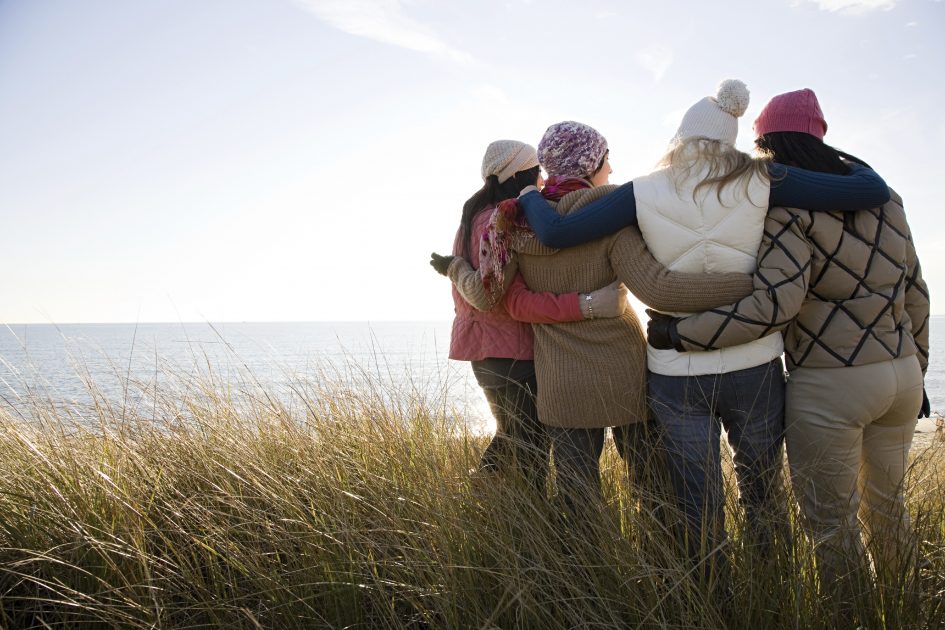The good news is that many women can survive this cancer if it’s detected and treated early.
- If you are a woman age 40 to 49, talk with your doctor about when to start getting mammograms and how often to get them.
- If you are a woman age 50 to 74, be sure to get a mammogram every two years. You may also choose to get them more often.
Talk to a doctor about your risk, especially if a close family member had breast or ovarian cancer. Your doctor can help you decide when and how often to get mammograms.
Men Can Get Breast Cancer, Too
 Men don’t have breasts like women, but they still have a small amount of breast tissue, making it possible to develop breast cancer.
Men don’t have breasts like women, but they still have a small amount of breast tissue, making it possible to develop breast cancer.
According to the American Cancer Society, less than 1 percent of all breast cancers occur in men. In 2016, about 2,600 men are expected to be diagnosed, with the lifetime risk of being diagnosed at about one in 1,000.
“Breast cancer in men is usually detected as a hard lump underneath the nipple and areola. Men have a higher mortality risk than women do, primarily because awareness among men is lower and they are less likely to assume a lump is breast cancer, which can cause a delay in seeking treatment,” according to the National Breast Cancer Foundation.
The chance of a man getting breast cancer increases with age. It’s uncommon for a man under 35 years old to get breast cancer; most forms of breast cancer occur in men between 60 and 70 years old. It’s important for men and women to maintain a healthy lifestyle to reduce their risk for breast cancer and other diseases.
Ways to Reduce Your Risk
 If you want to reduce your risk for breast cancer, you might be wondering what you can do. Certain factors, such as family medical history, can’t be altered. Still, there are lifestyle changes you can make to decrease your risk, such as:
If you want to reduce your risk for breast cancer, you might be wondering what you can do. Certain factors, such as family medical history, can’t be altered. Still, there are lifestyle changes you can make to decrease your risk, such as:
- Limiting alcohol intake
- Quitting smoking
- Controlling your weight
- Keeping physically active
- Limiting dose and duration of hormone therapy
- Avoiding exposure to radiation and environmental pollution
Research on Diet and Breast Cancer Is Ongoing
 Eating and maintaining a healthy diet may decrease your risk for cancer as well as diabetes, stroke and heart disease. According to The Mayo Clinic, “women who eat a Mediterranean diet supplemented with extra-virgin olive oil and mixed nuts might have a reduced risk of breast cancer. The Mediterranean diet focuses on mostly on plant-based foods, such as fruits and vegetables, whole grains, legumes and nuts. People who follow the Mediterranean diet choose healthy fats – like olive oil – over butter and fish instead of red meat.”
Eating and maintaining a healthy diet may decrease your risk for cancer as well as diabetes, stroke and heart disease. According to The Mayo Clinic, “women who eat a Mediterranean diet supplemented with extra-virgin olive oil and mixed nuts might have a reduced risk of breast cancer. The Mediterranean diet focuses on mostly on plant-based foods, such as fruits and vegetables, whole grains, legumes and nuts. People who follow the Mediterranean diet choose healthy fats – like olive oil – over butter and fish instead of red meat.”
The National Cancer Institute guidelines for cancer prevention can be used to decrease the chance of a breast cancer recurrence. These guidelines include:
- Maintaining a healthy weight for your height and frame
- Avoiding processed, smoked or charred foods
- Eating fruits, vegetables and whole grains in abundance
- Limiting overall fat intake to less than 30 percent of total calories
“Nutrition for Breast Cancer Patients and Survivors,” Johns Hopkins Medicine Staff, hopkinsmedicine.org, Sept. 14, 2016.
“Breast Cancer Prevention: How to Reduce Your Risk,” Mayo Clinic Staff, mayoclinic.org, Sept. 14, 2016.
“National Breast Cancer Awareness Month,” Office of Disease Prevention and Health Promotion, healthfinder.gov, Sept. 14, 2016.
“Breast Cancer Prevention: How to Reduce Your Risk,” Mayo Clinic Staff, mayoclinic.org, Sept. 14, 2016.
“Male Breast Cancer,” National Breast Cancer Foundation Staff, nationalbreastcancerfoundation.org, Sept. 14, 2016.
“Breast Cancer In Men,” American Cancer Society, cancer.org, Sept. 14, 2016.

